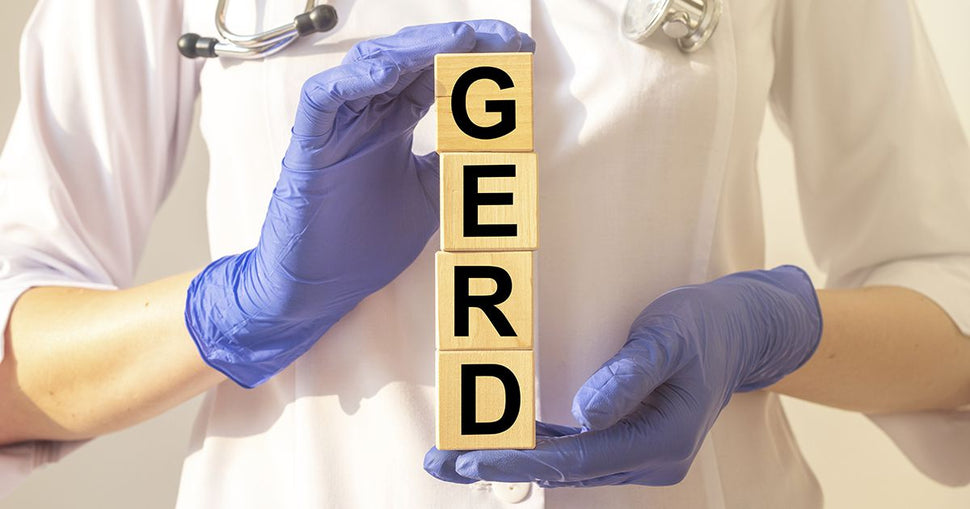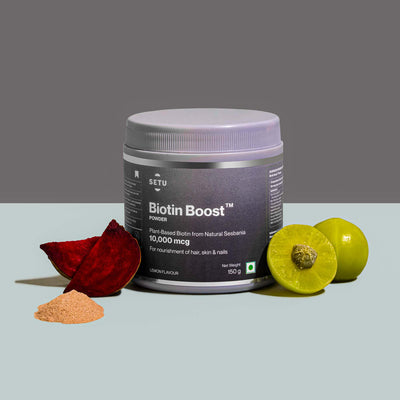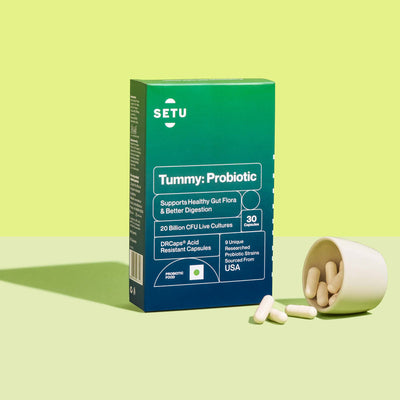How to recognise the warning signs of GERD
06 Sep 2021
If you suffer from acid reflux frequently, going about your day regularly can be difficult: you have to think twice before eating out, sleeping late, or doing anything that could mess with your delicate digestive system. If your acid reflux is so severe and frequent that it is affecting your quality of life, you could have Gastroesophageal Reflux Disease (GERD). Let’s take a closer look at this disease, what causes it, and why it’s important to seek professional help if you have GERD.
If you suffer from acid reflux frequently, going about your day regularly can be difficult: you have to think twice before eating out, sleeping late, or doing anything that could mess with your delicate digestive system. If your acid reflux is so severe and frequent that it is affecting your quality of life, you could have Gastroesophageal Reflux Disease (GERD). Let’s take a closer look at this disease, what causes it, and why it’s important to seek professional help if you have GERD.
What is GERD?
It’s a medical condition in which you frequently experience stomach acid rising back into your throat through the oesophagus. This happens when a band of muscle at the end of the oesophagus—the lower oesophagus sphincter or LES—doesn’t function properly. When these muscles relax at inappropriate times or become weak, stomach acid flows back up the food pipe.
Acid reflux is a fairly common problem. However, if it happens frequently over many weeks and doesn’t seem to go away despite taking medications and antacids, you may have GERD.
GERD symptoms
The symptoms of GERD and that of acute acid reflux are the same. However, it’s the severity and frequency of these symptoms that result in a GERD diagnosis. These symptoms include regurgitation of food and/or sour liquid, heartburn, difficulty in swallowing food, and stomach cramps.
Causes of GERD
There is no one single cause for GERD, but a list of possible causes. Here are some of them:
Weakened LES: The LES can weaken or get compromised due to several reasons like regular overeating, smoking or drinking alcohol. High-fat foods also tend to make the LES relax, and certain medications like blood pressure tablets, antibiotics or antidepressants can damage it.(1)
Hiatal hernias: This happens when a portion of the stomach moves upwards into the chest area. When the diaphragm—a muscle that separates the chest from the abdomen—is not intact, parts of the stomach can move upwards. This decreases the LES’s ability to prevent food from rising up the oesophagus. One of the most common symptoms of hiatal hernias is GERD.
Delayed Gastric Emptying (DGE): DGE is a medical disorder in which your body slows down or stops the movement of food from your stomach to the small intestine, therefore allowing food to stay in the stomach longer than it should. This can happen due to post-operative complications or certain diseases. DGE puts immense pressure on the LES due to an increase in stomach contents, and research has confirmed that DGE along with a weakened LES can be a sure-shot recipe for GERD (2).
Irregular diet and lifestyle: Excessive smoking and alcohol consumption, eating too many fatty and oily foods like deep fried dishes, and even overdosing on aspirin can increase you risk of developing GERD symptoms.
Risk Factors and Complications
GERD can lead to complications like a narrowing of the food pipe and open sores caused by acid burns, also known as oesophageal ulcers. These complications can reduce your appetite and even interfere with your sleep quality if left undiagnosed and untreated.
The biggest risk of prolonged GERD is the onset of Barret’s Oesophagus. This occurs when the cells in the lining of the oesophagus undergo abnormal changes due to repeated contact with stomach acid. Barret’s Oesophagus can increase your chances of developing oesophageal cancer. (3)
GERD treatment
If you’re suffering from this condition, certain home remedies for acid reflux can help.
Eat smaller meals: Eating larger meals put greater pressure on the LES. It is advisable to eat smaller meals so that digestion can take place smoothly.
Sit up straight after meals: Lying down immediately after eating can cause stomach acids to flow black into the oesophagus. Therefore, sitting up straight for a few hours after meals can help reduce the chances of gastroesophageal reflux.
Use wedge pillows: Keeping your upper body in a slightly elevated position at night can prevent acid reflux. Special pillows called GERD pillows have been designed to keep your body at the right angle while sleeping.
If your symptoms persist and don’t go away despite home remedies, consult a doctor. Medications to treat GERD include antacids, H2 receptor blockers, and proton pump inhibitors (PPIs)
Surgery for GERD
Surgery can help you gain permanent relief from the symptoms of this disease. For patients who do not respond well to oral medication, laparoscopic fundoplication is performed. (4) In this surgery, a part of the stomach wall is wrapped around the LGS to reinforce it.
GERD in Infants
Research suggests that the main causes of gastroesophageal reflux in infants is the fact that they spend most of their time lying down. Moreover, the LES in infants is not fully developed. GERD symptoms in infants include problems swallowing food, choking, frequent regurgitation, repeated loss of appetite, excessive tantrums during meal time, and insufficient weight gain.
Diet and GERD
One of the best ways to prevent the onset of GERD is to regulate your diet and take steps to improve your digestive system. Supplements like Setu Tummy: Probiotic fight indigestion and keep your gut microflora strong and diverse. It contains 9 strains of probiotics that improve your tummy health and overall immunity. Additionally, try eating fibre-rich foods that aid digestion and eating right even when traveling or dining out.
FAQs
1) Is this disease hereditary?
Twin and family studies have found that there is a 31% chance of this disease being hereditary. (6)
2) What is the risk of developing cancer as a complication of this disease?
Since GERD is a rather common disease, most people who have it do not develop cancer as a complication.

Skin: Renew - Glutathione
- ₹1,694
- ₹1,694
-
₹2,200 -
You Save:
₹506 (23%)
Categories
- Choosing a selection results in a full page refresh.
- Press the space key then arrow keys to make a selection.
this is the sidecart









